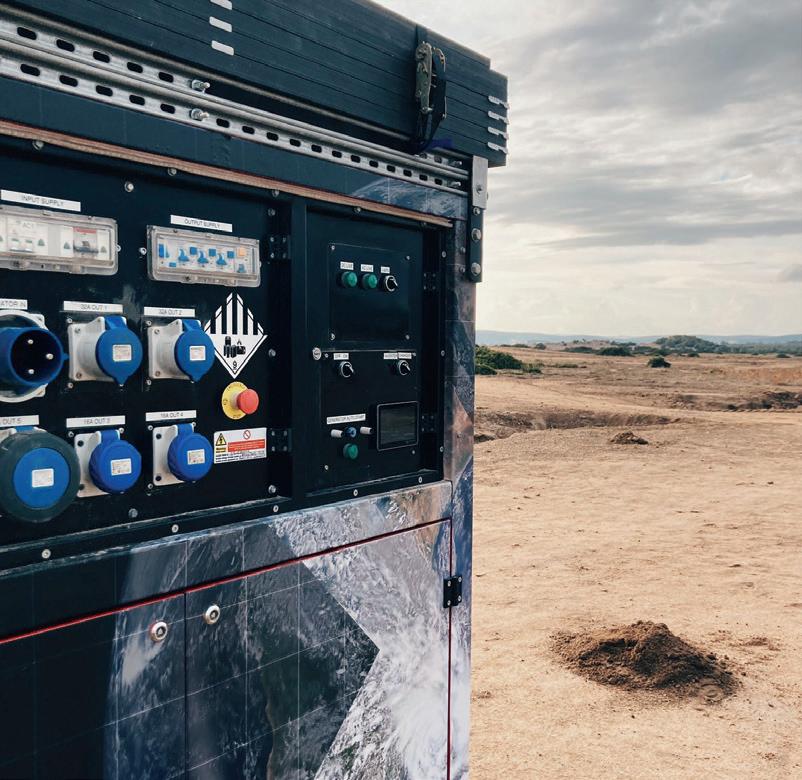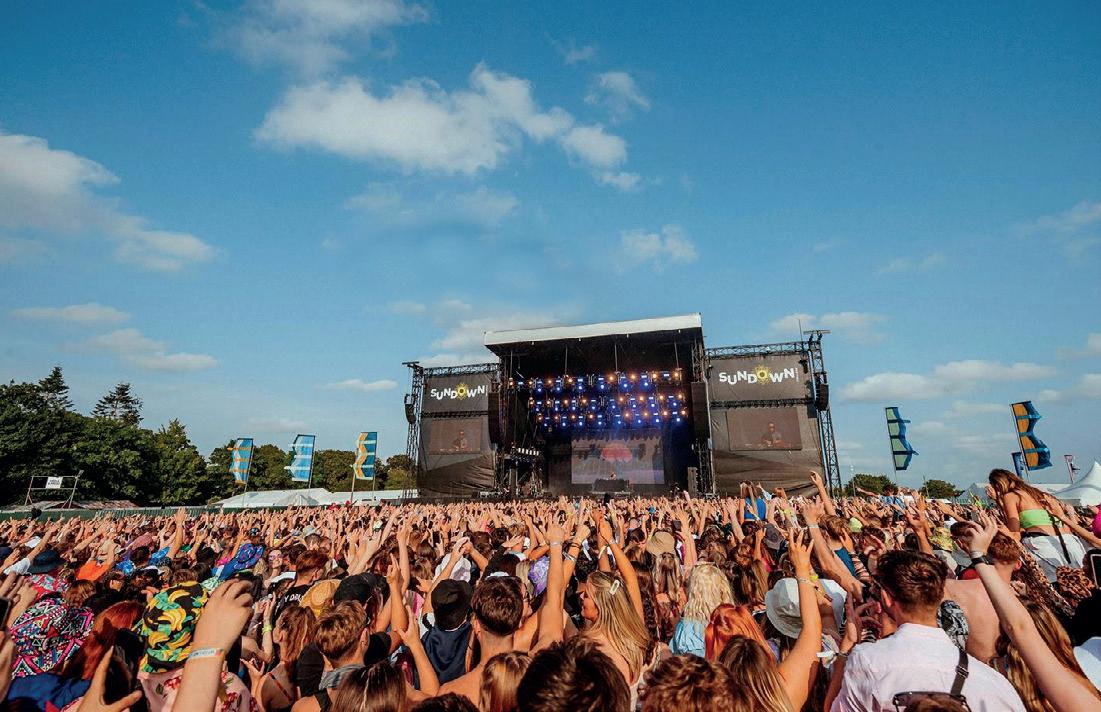
9 minute read
PRICE RISES
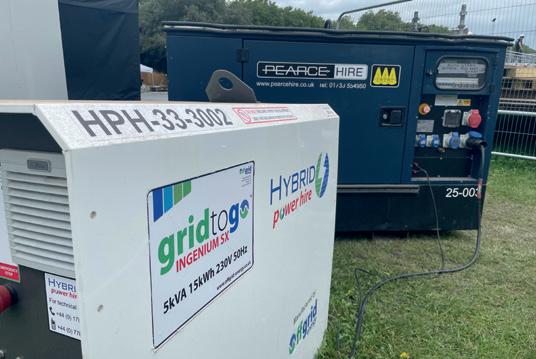
Power: At what cost?
The Government’s ban on red diesel comes into effect in April, meaning power costs will increase. Power experts chat
From April 1, the events industry will no longer be able to use red diesel and rebated biofuels to power events or festivals.
Many event organisers are aware of the upcoming change – that red diesel can no longer be used to power generators or plant on site – but there are some events professionals that remain unaware of the large impact that this new law is going to have on production costs.
THINK ABOUT EMISSIONS
The Government announced the ban on red diesel in April 2020, as part of its drive to achieve netzero carbon emissions by 2050. But what does it mean for the events industry?
Red diesel is ordinary “white diesel” that is used in road vehicles, but it contains a dye and is taxed at a much lower rate. Increasing the fuel tax that organisers must pay is designed to make events professionals think of the emissions they produce, and it’s also hoped that it will encourage people to use cleaner and alternative fuel sources. It’s good news for the environment, but events and festivals will be hit hard by the change.
PEARCE HIRE
Essentially, it means that from April 1, mobile generators and plant machinery used on festival/event sites cannot be powered by red diesel. And you can’t bulk purchase red diesel prior to April 1 either because HM Revenue and Customs intends to issue hefty fines if red diesel is not removed from bowsers by this date.
LACK OF AWARENESS
It’s worth noting that the ban only relates to the context in which it is being used and not the equipment itself. For example, red diesel can be used in a generator that is being utilised in an agricultural setting, but it cannot be used in a generator on a festival site. Plus, it will still be permitted to be used to power the machinery of travelling fairs and circuses.
Right now, much work needs to be done to ensure that organisers are prepared for the fuel bill increases that will ensue, especially as many power experts are surprised at the lack of awareness of the upcoming changes.
“We’ve been genuinely surprised at how many clients are unaware of the changes and haven’t budgeted for the increase,” said Mike Whitehouse, managing director of Power Logistics. “It’s only been in the last month that the realisation has hit home and it’s starting to be factored into 2022 event plans, as in real terms it represents a 30 per cent increase in fuel costs.”
George Nearn, project manager at Flying Hire, concurred. Many events professionals remain unaware that plant and machinery will no longer be allowed to use red diesel. As a result, organisers have not budgeted for higher fuel costs and have not even considered the potential threat of diesel theft.
“We are working hand in hand with our clients to do our very best to help them through the change,” Nearn explained. “Essentially, it’s all about usage – lower the usage, lower the cost – so we are finding ways to keep usage down.”
LOWER USAGE = LOWER COSTS
Shaun Pearce, managing director of Pearce Hire, believes that people who routinely purchase large amounts of diesel are doing their best to plan and budget accordingly. Unfortunately, those who buy smaller amounts or who are “not professional or regular event organisers” are upset to discover the rising costs of fuel.
POWER LOGISTICS AT BOARDMASTERS
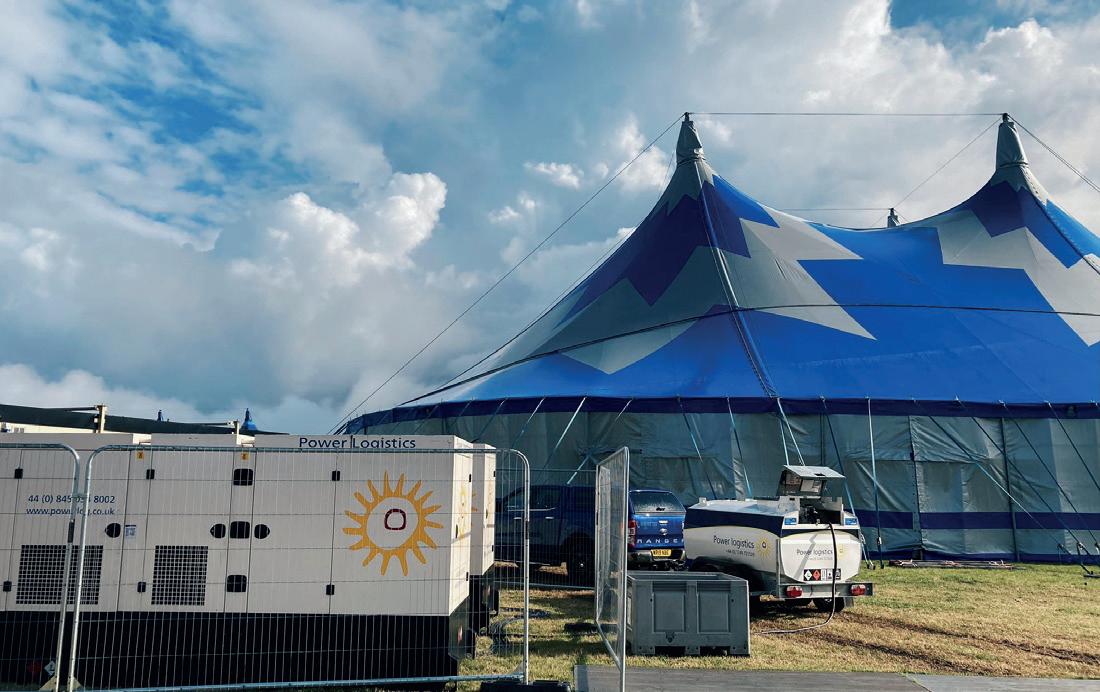
He commented: “The severity of these changes makes this subject a difficult but necessary one to broach as early in the planning process as possible. As we have done for many years, we will continue to recommend and deploy the most appropriate and cost-effective solutions for all our clients based on their individual and unique event requirements. But we think there will regrettably be a detrimental impact across the board and that inevitably most event organisers will see their power bills go up this year.
“We expect to see a push from organisers to reduce their fuel usage to try and minimise the increase in fuel costs. The increased cost of diesel may make it more attractive for our clients to spend more on new and more sustainable technologies to reduce fuel use and, therefore, emissions.”
PUSHING BOUNDARIES = EXPENSIVE
From a policy standpoint, Graham MacVoy, site and operations director at Boomtown Fair, and CEO of GMC Events, is “OK” with the changes. However, he was disappointed that the Government did not delay the ban of rebated biofuels, which would enable an organiser to adopt a more staggered approach and move away from diesel gradually.
MacVoy said: “I think the changes will definitely make people look at their power consumption more, which is really good. I think it will take a few years to really impact, but it may well increase the speed of battery and hybrid development. However, there will be a lag on affordability and availability of equipment for sure. Technology still needs to catch up and that takes investment and incentivisation from the Government, which isn’t really in place.”
At this year’s Boomtown Fair, MacVoy will test a new hydrogen generator and will use biofuel across the entire site. Yet MacVoy acknowledged that pushing boundaries is really expensive, and it’s a tough year for the sector to be trying new ideas.
EARLY PLANNING IS NEEDED
The rebated fuels affected by the changes include biodiesel and hydrotreated vegetable oil (HVO) but it’s worth noting that not all HVO fuels are the same. Whitehouse argued that whilst there is still some uncertainty around the cost of HVO, such as Green D+ HVO, he believes that its price won’t increase significantly, which will make it competitive with diesel. As a result, he hopes that more organisers will use Green D+ HVO as a greener alternative, as the cost will no longer be eye-wateringly high in comparison. He said: “We’ve proved at the events we’ve supported over the last few years that it is a great alternative even in plant and machinery so that should be a positive step towards more sustainable events. In fact, taking it a step further and coupling it with our bespoke power monitoring system has decreased fuel usage and, therefore, fuel bills as a result. By talking to organisers early in the planning stages and devising solutions tailored to their events there are real savings to be made in both carbon emissions and costs.”
Pearce agreed with Whitehouse. Early planning is essential if organisers want to navigate this whole new world of potential pain. Pearce continued: “We continue to champion the idea of getting information from organisers as early as possible. This includes finding out what the actual power requirements are; making system recommendations to minimise demand and once we’ve done all that to correctly size our generators solutions to fit. We’re also seeing an increase in opportunities to deploy battery systems to reduce generator running times. This is where our records and pre, and postevent evaluations of actual requirements will come into their own. We will be doing everything we can to help clients reduce fuel bills. Reducing engine sizes and running times at all costs is key to this.”
INVESTING IN THE FUTURE
During the pandemic, Pearce Hire converted its entire fleet of generators to operate using Green D+ HVO fuel. This has a proven decrease in emissions, including a massive 75 per cent to 85 per cent reduction in particulate matter emitting from the fuel, alongside reduced greenhouse gas emissions, including nitrogen oxide.
Like Pearce Hire, Flying Hire and Power Logistics, which supplies Formula E, Extreme and Boardmasters, and has invested in new kit and technology too. Flying Hire has just taken delivery of its first batch of Stage V compliant generators, which limit particulate matter, and Power Logistics has invested in super silenced generators, battery storage units, electric vehicle charging units and solar panels also.
Power companies are exploring new technology and kit all the time to build on the sustainable and innovative power solutions that can be delivered. Whitehouse added: “Stage V generators vastly reduce emissions and are not widely available for use in the event industry at present. Coupling this carbon efficient generator with technology such as the 60kw inverter on 100kwh’s of storage battery unit is effective in charging the battery and optimal fuel efficiency.
“These innovations are perfect for smaller events or specific areas on site but we’re still quite a way from these being the norm.”
Pearce added: “We are in discussions with several clients with regards to the increased use of battery technology. But as with most green initiatives the cost implications become an issue. Having said that, the removal of rebated fuel will go some way to meeting the shortfall. As an example of where we are rethinking things, we love working with our long-term client AEG on its events in Victoria Park, London. We work in close collaboration with their team, and we are already looking at ways to continue our previous reductions in engine sizes, running hours, and the introduction of battery technology, where viable.”
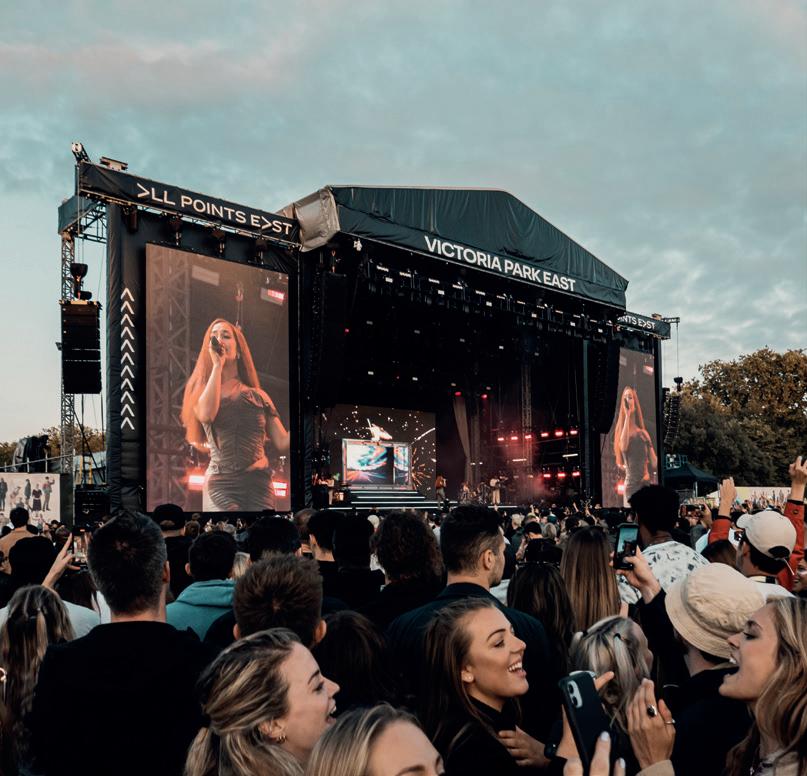
OTHER CONCERNS
But what of the coming season? MacVoy stated that GMC Events, which is working with Bristol Pride this year, will work and advise on projects, the same as it always has. Its focus will be to maximise efficiency of power networks and minimise fuel consumption. MacVoy continued: “At Shambala, some years ago, we started billing traders by kwh, which I would like to roll out to more festivals. The worry is that this just pushes traders onto using more gas, a fossil fuel, which is a shame if a festival is using biofuel.”
MacVoy believes that reducing end user consumption is the key to reducing fuel consumption. However, Nearn says that whilst the new changes raise many questions and are clearly a challenge for the upcoming season, the focus at the moment is whether power suppliers can and will be able to deliver kit and services, and if events can get off the ground.
Pearce concluded: “Another thing which concerns us may well be the impact on smaller and borderline budget events that will struggle with the new fuel price increase. The knock-on effect being that they will not happen at all, or fold after this year’s edition. These events are vital to the future of our industry. Not only do the more successful ones evolve over the years into larger scale events, but these smaller festivals and show nurture new talent coming up through the ranks, even those young professionals starting as volunteers on a local festival or show. The resulting effect of this cost increase could have a dramatic effect on crew for the larger shows in years to come.”
